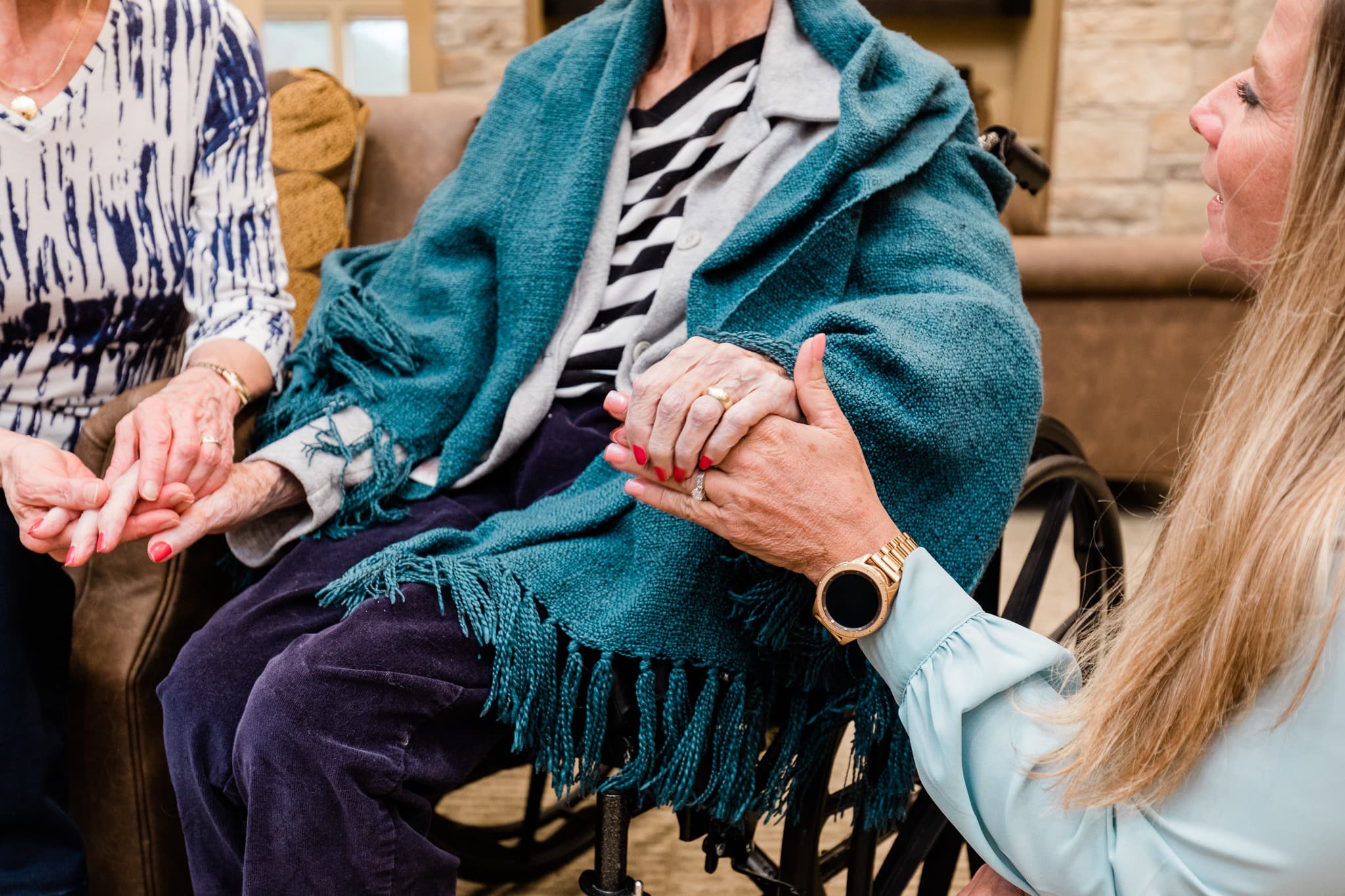Moving a loved one into a memory care community is a significant and emotional step. For individuals living with Alzheimer’s or dementia—and for the families who love them—this transition can feel overwhelming. But with the right preparation and a caring team by your side, the journey can also be filled with peace, reassurance, and hope.
At Grand Brook Memory Care, we understand how tender this time can be. That’s why we’re committed to walking alongside families every step of the way, helping to create a smooth and supportive transition into our loving, home-like environment.
Here are seven steps families can take to help ease the move and ensure their loved one receives the compassionate care they deserve:

1. Choose the Right Memory Care Community
Finding the right community is one of the most important decisions in this journey. Not all senior living options offer specialized support for individuals with memory loss. It’s essential to choose a community that focuses specifically on dementia and Alzheimer’s care.
At Grand Brook, every detail of our communities—from the thoughtfully designed layout to our highly trained, compassionate team—is tailored to meet the unique needs of individuals living with dementia. We’ve created a secure, engaging, and comforting atmosphere where residents feel at home and cared for.
We encourage families to visit multiple communities, ask questions about staff training, safety, and programming, and choose the one that best fits their loved one’s personality and care needs.
2. Prepare for the Transition Early
Adjusting to a new home takes time, especially for someone living with memory loss. Planning ahead can reduce stress and help everyone feel more at ease.
If possible, visit the community with your loved one before move-in day. Let them meet the team, participate in a few activities, or spend time in shared spaces. Familiarity can ease anxiety and lay the foundation for a more positive transition.
3. Personalize Their New Space
A familiar environment goes a long way in helping a loved one feel comfortable. Bring cherished items from home that reflect their personality, history, and comfort—like favorite photos, a cozy blanket, beloved books, or a familiar piece of furniture.
At Grand Brook, we encourage families to help make each resident’s room a true reflection of who they are. These personal touches can support memory recall and create a comforting sense of belonging.

4. Communicate with Staff and Caregivers
Strong communication between family members and caregivers is key to providing personalized, meaningful care. The more we know about your loved one—their routines, preferences, life history, and what brings them joy—the better we can support them.
At Grand Brook, one of the first steps in that partnership is completing our Resident Portrait. This important tool gives families the opportunity to share their loved one’s favorite activities, meaningful memories, hobbies, preferences, and even small details like how they take their coffee or what music they enjoy. It helps paint a fuller picture of who they are—not just medically, but personally.
Sharing stories, interests, and even little things like favorite songs or past careers helps our team form deeper connections and respond with empathy and understanding. We take pride in getting to know each resident as the unique person they are, honoring their individuality through every interaction and aspect of care.
5. Encourage Engagement in Meaningful Activities
Staying active and connected is vital for emotional and cognitive well-being. Memory care communities offer enriching activities that promote social interaction, creativity, and a sense of purpose.
At Grand Brook, we offer a variety of engaging programs tailored to meet each resident’s needs, such as:
- Music Therapy: Stimulates memory and emotions.
- Art and Creative Expression: Encourages communication and self-discovery.
- Gentle Exercise: Supports strength, mobility, and overall health.
- Social Gatherings: Fosters connection and community.
- Gardening and Outdoor Time: Provides relaxation and sensory stimulation.
Participation in these kinds of activities can uplift the spirit, reduce anxiety, and help your loved one feel a part of something meaningful.
6. Be Patient and Reassuring
Transitions take time, and every person adjusts at their own pace. It’s natural to see moments of confusion, hesitation, or sadness—especially in the early days.
Offer encouragement, listen with empathy, and provide gentle reassurance. Your presence and trust in the care team can go a long way in helping your loved one feel safe. As they begin to settle in, find comfort in knowing they are surrounded by people who genuinely care.
7. Stay Connected and Involved
Even after the move, your role remains deeply important. Visiting regularly, attending events, or simply sitting together during a meal can mean the world to your loved one.
At Grand Brook, we value and encourage family involvement. Whether through participating in activities, joining a support group, or sharing stories with staff, staying engaged nurtures relationships and creates a strong circle of support around your loved one.

A Compassionate Transition with Grand Brook Memory Care
At Grand Brook Memory Care, we know that moving a loved one into memory care is not just about choosing a community—it’s about finding a partner you can trust. Our team is here to make that journey a little easier, offering expert care, heartfelt connection, and a warm, loving environment your family can feel confident in.
If you’re considering memory care, we invite you to reach out to us. Let us show you the difference that compassionate, individualized care can make—and how your loved one can thrive in a place that feels like home.


